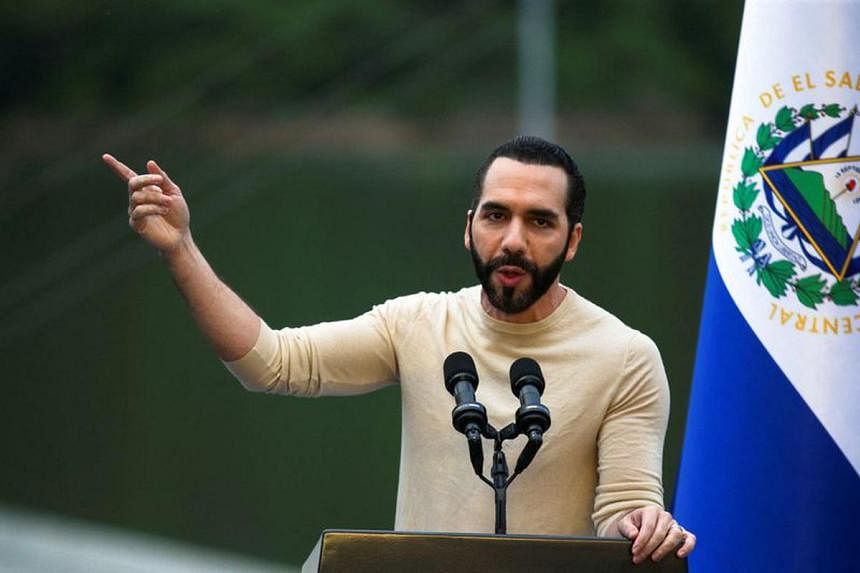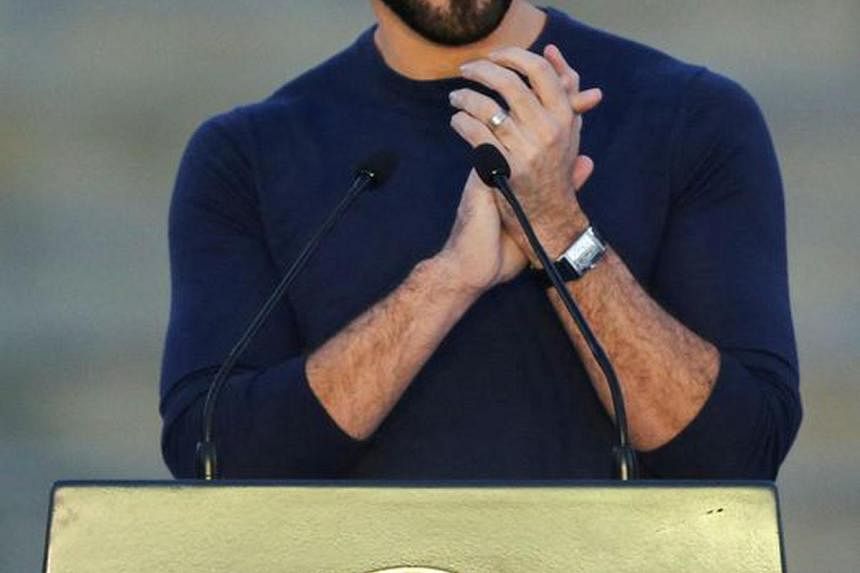SAN SALVADOR - In June 2019, a week after taking office as El Salvador's youngest president in modern history, Nayib Bukele wrote on his Twitter account: "I am officially the coolest president in the world."
Bukele's self-congratulatory tweet came after he had used the same social network - now known as X - to fire around 400 officials, some accused of nepotism or with links to his leftist predecessor.
Tired of decades of corruption and traditional parties' ineffectiveness in the face of surging violence and a stagnant economy, Salvadorans embraced the then 37-year-old jeans-clad former publicist as a change agent.
Bukele showed just how far he was willing to go in 2020, sending heavily armed soldiers and police to the country's parliament building to pressure lawmakers debating a $109 million anti-crime package.
"Now I think it is very clear who is in control of the situation," Bukele said after seizing the legislative president's chair. A cheering, flag-waving crowd greeted him when he left the building.
Those tactics drew widespread condemnation, with The Economist accusing him of wanting to become "Latin America's first millennial dictator." But Salvadorans shrugged off the criticism, voting in a strongly pro-Bukele congress that easily passed the legislation.
It was the first sign of a flirtation with authoritarianism that critics say could intensify during the next five-year term that Bukele is overwhelmingly expected to win when El Salvador goes to the polls on Sunday.
He backed the assembly's moves to fire judges and the attorney general. That was followed by the imposition of bitcoin as legal tender and, most importantly, the suspension of civil liberties to combat gangs.
Some have expressed skepticism about the long-term efficacy of his administration's sweeping detentions of those suspected of gang membership, with Mexican political analyst Carlos Perez calling it "as dangerous as it is attractive to millions."
"A model based on mass incarceration is simply not sustainable," he said.
But it has helped boost Bukele's approval ratings to nearly 90%, giving him the momentum to easily bypass constitutional limits on running for a second term.
AN IDEOLOGICAL SHAPESHIFTER
Born in 1981 to a successful businessman of Palestinian descent, in his pre-politician days Nayib Bukele worked in his father's ad agency and handled the account for the leftist former guerrilla group Farabundo Marti National Liberation Front (FMLN), then in power.
Representing the FMLN, Bukele won the mayoralty of Nuevo Cuscatlan, a forgotten coffee town near San Salvador where he dramatically reduced homicides and donated his salary to scholarships.
He used social media to promote his achievements, showing a savvy that catapulted him to the mayoralty of capital San Salvador in 2015. There, he soon gained prominence for works like revitalizing the historic center and building a library.
Despite his growing popularity, Bukele was expelled from the FMLN in 2017, allegedly for sowing division and violating the party's statutes, accusations he denies. He switched to a right-wing political alliance, eventually winning the presidency on pledges to end corruption and tackle the violence plaguing El Salvador.
"He's only interested in his image," said Bertha Deleon, who was Bukele's lawyer until 2021 when she left for Mexico after a public spat with the president.
"That is why he doesn't forgive any criticism on social networks, it's untouchable and sacred ground for him."
Critics have also accused him of nepotism for giving jobs to his relatives and of failing to fix an ailing economy - but, with the murder rate at historic lows, the charges have not made much of a dent in his popularity.
"Nayib does excellent management, we have never had someone who cared so much about people's well-being," said Eduardo Samayoa, a 36-year-old taxi driver in San Salvador. REUTERS



